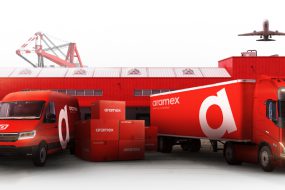Fast-Moving Consumer Goods (FMCG) are designed to move quickly through the market, often selling out within days or even hours. However, behind this rapid turnover lies a far more complex reality: intricate logistics networks, operational disruptions, and a constantly evolving consumer base that can be difficult to anticipate.
Whether it involves packaged foods, personal care products, or beverages, the speed of the products is not always matched by the efficiency of the supply chains that deliver them. Increasingly, the industry faces mounting pressure to streamline operations, improve accuracy, and reduce inefficiencies. The most effective enabler of this transformation is technology.
Related Reading: How tech is revolutionizing logistics efficiency
Key Challenges in the FMCG Supply Chain
Even the most experienced supply chain professionals encounter persistent challenges in this sector:
- High complexity
FMCG supply chains involve multiple stakeholders – manufacturers, suppliers, distributors, and retailers – working to maintain synchronisation. Communication gaps and operational fragmentation are common, and a single delay or stock shortage can disrupt the entire network. - Unreliable demand forecasting
Consumer preferences change rapidly. Traditional forecasting methods often fail to keep pace, resulting in either surplus inventory – leading to waste – or shortages, which risk eroding customer trust. - Urbanisation pressures
As cities grow, last-mile logistics face new obstacles. Congested streets, narrow delivery access points, and limited delivery time slots significantly increase operational costs. - Operational inefficiencies
Outdated warehousing processes, transport blind spots, and limited inventory visibility all contribute to reduced performance. Without real-time data, it becomes increasingly difficult to identify and correct inefficiencies.
Where Technology Is Delivering Improvements
The future of FMCG logistics will be characterised by greater speed, stronger connectivity, and smarter decision-making. Key technologies driving this change include:
- AI and Advanced Analytics – Improved Forecasting
Artificial intelligence and predictive analytics integrate historical sales data, consumer behaviour trends, and external signals such as social media activity to provide accurate demand forecasts. This leads to improved production planning, reduced waste, and fewer stock shortages. - Blockchain – Transparency and Traceability
Blockchain technology offers a secure, decentralised record of every stage in the supply chain. It allows for rapid tracing of products – essential in quality assurance and recalls – while enhancing transparency and trust among all stakeholders. - Internet of Things (IoT) – Real-Time Insights
IoT sensors provide continuous monitoring of goods in storage and transit. They can detect delays, temperature deviations, or potential damage, enabling immediate corrective action and ensuring product quality and shelf life. - Multimodal Transportation – Greater Flexibility
Combining road, rail, sea, and air transport options creates a more resilient delivery network. This flexibility reduces delays and helps maintain service consistency. - Automation – Enhanced Speed and Accuracy
Automated systems in warehouses now handle picking, packing, and shipping with high accuracy and speed. This reduces human error, lowers labour costs, and shortens lead times.
Related Reading: How top brands are fixing supply chain slowdowns


Strategic Implications for Supply Chain Leaders
The adoption of technology in FMCG logistics requires more than simply integrating new tools – it demands a shift in operational mindset.
- Circular Economy – Sustainable Logistics
Sustainability has evolved from a brand differentiator to a business necessity. Designing products and supply chain processes that reduce waste, optimise resource use, and support recycling can yield both environmental and financial benefits. - Skills Development
As technology adoption accelerates, the need for specialised roles, like data analysts, AI experts, and technology-oriented logistics managers, becomes critical. Strategic investment in talent acquisition and employee training will be essential for long-term competitiveness. - Resilience Over Speed
Recent global events have reinforced the need for supply chains that can adapt rapidly to disruptions. Building agility into FMCG logistics ensures business continuity in uncertain conditions.
Related Reading: Exploring the future of supply chain transparency with blockchain technology
Key Takeaway: Building a Smarter, More Resilient FMCG Supply Chain
With shifting consumer behaviour and the growing demand for speed and precision, FMCG companies can no longer afford operational inefficiencies. The adoption of technologies such as AI, IoT, blockchain, and automation offers a pathway to improved efficiency, transparency, and resilience.
By combining innovative tools with strategic planning and workforce readiness, FMCG supply chain leaders can ensure their operations are equipped to meet both current challenges and future demands.
Ready to future-proof your FMCG logistics strategy? Reach out to us!




